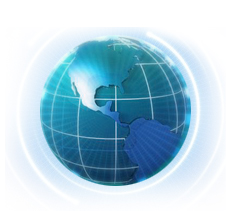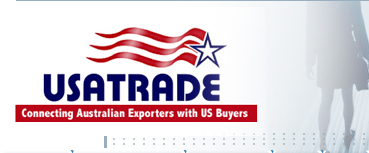
Commitment and Budget – not on a shoestring
The US economy is roughly twenty-six times that of Australia. Penetrating the US market can be costly. You must take a long-term view and be prepared to be persistent and patient while you wait for sales. Breaking into any new market, but especially the huge competitive US market, requires financial strength and commitment. It may take six-months just to feel out the market potential for your product. Your level of expectations should be directly proportionate to your available US sales and marketing budget, since even the best product, does not sell itself. Unless your product already carries a household name in the US, do not expect your distribution partners to finance your marketing launch, simply because you granted them a right to sell your product. Spend your marketing dollars wisely and measure your return on investment.
Market Position - pick the cherries
Segment the US market by customer category, product line, geography, etc., and attack multiple segment opportunities and niches. This requires good and ongoing knowledge of the potential US market for your product and/or service. One high-visibility testimonial account is a desirable early sales goal: there is no better advertisement than a satisfied customer, or for that matter, a local branch of an American company in Australia. Selling to the US Government is lucrative, and wide open to Australian exporters under the new Free Trade Agreement, but this may not be the first or easiest place to begin your export initiative. Partnering and sub-contracting with a complementary US company already selling to the US Government may be an easier method of getting a foot in the door. Being on a GSA schedule, is still very far from guaranteed government business. Even though you may have the better mousetrap, avoid the temptation of trying to compete head on with established US firms (Netscape vs. Microsoft?), rather, try to work with them.
Your Product/Service – it better be tops
Your product or service needs to be able to meet and/or beat existing US competition, and meet any regulatory US standards or certifications that may apply. Know your US competitors, be able to pinpoint your advantages, and have your ROI calculations prepared. It is recommended that you achieve significant success and product maturity in Australia prior to embarking on US exports. Be sure you are capable of delivering promptly on product promises, since you will rarely receive a second chance. US business moves fast and efficiently, and does not tolerate delayed delivery dates, or inferior deliverables. Don't expect your product to sell itself, and even with a fantastic product, remember, dealers and resellers care more about the margins they can make, over the features of the product itself.
Free Advice, Free Money - take it
AUSTRADE offers an outstanding array of services to new Australian exporters. Take full advantage of the TradeStart program and the Export Market Development Grants, but appreciate that AUSTRADE will not actually sell your products, or substitute your need for an overseas office, and/or overseas Sales Agent. Network with the AUSTRADE Business Development representatives whom cover your industry, and targeted export country.
Public Relations – get ink
PR is a relatively inexpensive, yet very credible lead generator and sales tool. This especially applies to the US where print and online advertising has become very expensive. Also, US ICT buyers, and US consumers in general, are very influenced by trade publication product reviews. Rely on PR as a primary US marketing tool: press releases, product reviews, editorial coverage, interviews, whitepapers, case studies, testimonials, seminars, public speaking, user groups, etc., etc. Kicking up a lot of noise is an essential ingredient to marketing in the US, especially in the ICT arena. Any publicity is good publicity!
Sale and Marketing advice from a lawyer - not
Numerous Australian export events are sponsored by lawyers, and as such, are disproportionably slanted towards the intricate legal and contractual issues related to selling overseas. Rather than focus on
sales opportunities, lawyers emphasise the legal hazards of doing business abroad, and the many legal pitfalls and contractual complexities along the way. Yes, protecting intellectual property, and drafting a good distribution contract are very important issues, but use your sound business sense to find the sweet spot between protecting yourself, doing the deal and making money -- and being over-protective, paying excessive legal fees, and appearing difficult to work with. After all, doing business in the US is much more similar to doing business in Australia, than some of the experts may lead you to believe.
Customer Service – numero uno
The Customer Service expectation level is probably the number one factor differentiating business in the USA, and the rest of the world. Customer Service is practiced almost as a religion in US business. It makes or breaks companies, especially at the consumer level. Harvard Business School research showed that
great American companies have the ability to handle a customer problem, with the same efficiencies as they handle
the customer's new business. American businesses and consumers expect, where applicable, next-day delivery, immediate response times, immediate call backs, a full money-back guarantee, immediate technical support, real-time online chat operators, strict conformance to Service Level Agreements, toll-free (free-call) support numbers, and 100% product quality. Research also shows that over 70% of unsatisfied US customers do not complain, they simply take their business elsewhere -- and in the competitive US, you can be sure of the many hungry competitors waiting to pounce on your customers, with a ‘competitive upgrade' offer. So yes, it is a jungle out there, but let your level of Total Customer Satisfaction make you shine above the bunch.
Appear local - work on your American accent
Senior US buyers prefer to buy from a US company. It's human nature (
what if it breaks down, and its 3am in your country? ) Selling to Wal-Mart (the largest US retailer), for example, demands having an office in Arkansas; selling to the US Federal Government or Military on a large scale often requires having an office in D.C, Maryland, or Virginia. Having a local presence is a feature of senior face-to-face sales and account management. There is rarely a compelling business reason or advantage, in highlighting the fact that your product originates
outside the US. Recruit a local representative, or at least exhibit
local contact information (phone, address). Play down the fact that
your product and company may be from overseas. Even though the Free Trade Agreement is in place, human buying habits often dictate that we appear local.



